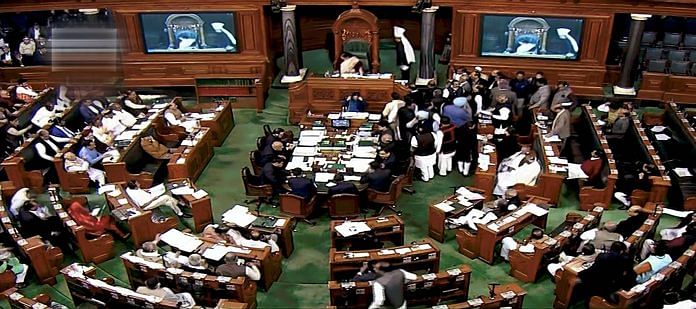If the Gujarat polls had been the cause for late starting of the session, the results also have an echo in the functioning of Parliament.
The winter session of Parliament has just begun, but will it be one more wasted session?
The opposition believes that it has to block the business to show its might and the government shows its brute majority to push through the bills even without discussions. If the Gujarat polls had been the cause for late starting of the session, the results also have an echo in the functioning of Parliament. Though the Congress lost Gujarat to the BJP, its morale is high because of the narrow loss, and the Congress-led opposition is determined to be belligerent.
Regrettably, the Parliament sessions have become progressively shorter in India. Gone are the days of effective parliamentarians like Nath Pai, Bhupesh Gupta and A.K. Gopalan. In the last decade, the Lok Sabha met for an average of 70 days in a year as against 120 days in the 1950s and ’60s. The House of Commons in the UK met for an average of 150 days, while the US Congress met for an average of 140 days during the same period. In fact, the General Purpose Committee of the Lok Sabha on 22 April 1955 recommended a timetable for all the sessions. The Constitution Review Commission in March 2002 also recommended that the minimum number of working days for the Lok Sabha and the Rajya Sabha should be fixed at 120 and 100, respectively.
The current session is perhaps the shortest of the 16th Lok Sabha. It will have 14 sittings spread over a period of 21 days, including four Private Members’ days. Also 25 Bills are pending in Lok Sabha while 39 Bills are pending in the Rajya Sabha.
According to the PRS Legislative Research, the 2016 winter session was the least productive one in the past 15 years. While the Lok Sabha lost 107 hours due to disruptions, the Rajya Sabha lost 101 hours. The presiding officers are in no position to control the House as the opposition comes determined to block the business and the government remains rigid on its position. In such a case, how could the Parliament function, pass laws and do its other duties when politics takes priority?
Interestingly, after more than three-and-a-half years, the Modi government is in a better position in both Houses of Parliament. Though the ruling NDA is still in minority in the Upper House, two things are in its favour. The first is that the BJP has become the single largest party in the Rajya Sabha, overtaking the Congress recently, and secondly with the Nitish Kumar-led JD (U) joining the NDA, and the AIADMK supporting the government, it will be easier to push through its bills.
Moreover, the Rajya Sabha has a new chairman in M. Venkaiah Naidu who is an experienced politician. The BJP was not very comfortable with his predecessor Hamid Ansari. But Naidu’s first day itself began with a ruckus by the opposition parties led by the Congress on the issue of disqualification of the rebel JD (U) leader Sharad Yadav.
Prime Minister Modi made all the conciliatory noises on the eve of the winter session seeking the cooperation of the opposition leaders during the customary all-party meeting, but will the opposition oblige him? Chances are bleak.
First of all, Modi’s appeal, made just after the end of a bitter Gujarat poll campaign, is unlikely to persuade the opposition to play along. Secondly, the Congress has decided to make an issue of an allegation levelled by Modi against former Prime Minister Manmohan Singh alleging that he and a handful of senior Congress leaders colluded with Pakistani officials at a private dinner recently to influence the Gujarat result.
If one more session is wasted, legislative business will be affected badly. There are several key Bills waiting for the Parliament nod including one to provide constitutional status to the Backward Classes Commission. The Muslim Women (Protection of Rights on Marriage) Bill, 2017 giving a Muslim woman the right to seek maintenance in the case of instant triple talaq, makes triple talaq a penal offence.
Another key Bill to amend the electoral law to allow Non-Resident Indians (NRIs) to vote through postal or e-ballots is to be introduced. Modi has been wooing the diaspora since he took over. The Transgender Persons (Protection of Rights) Bill, 2017 is also to be introduced.
With so much business at hand, should Parliament not function? What is the role of the MPs? They are public representatives and meant to discuss and find solutions to redress the grievances of the people. The second is to scrutinise the budget, and the third, and more important function, is that of making laws.



